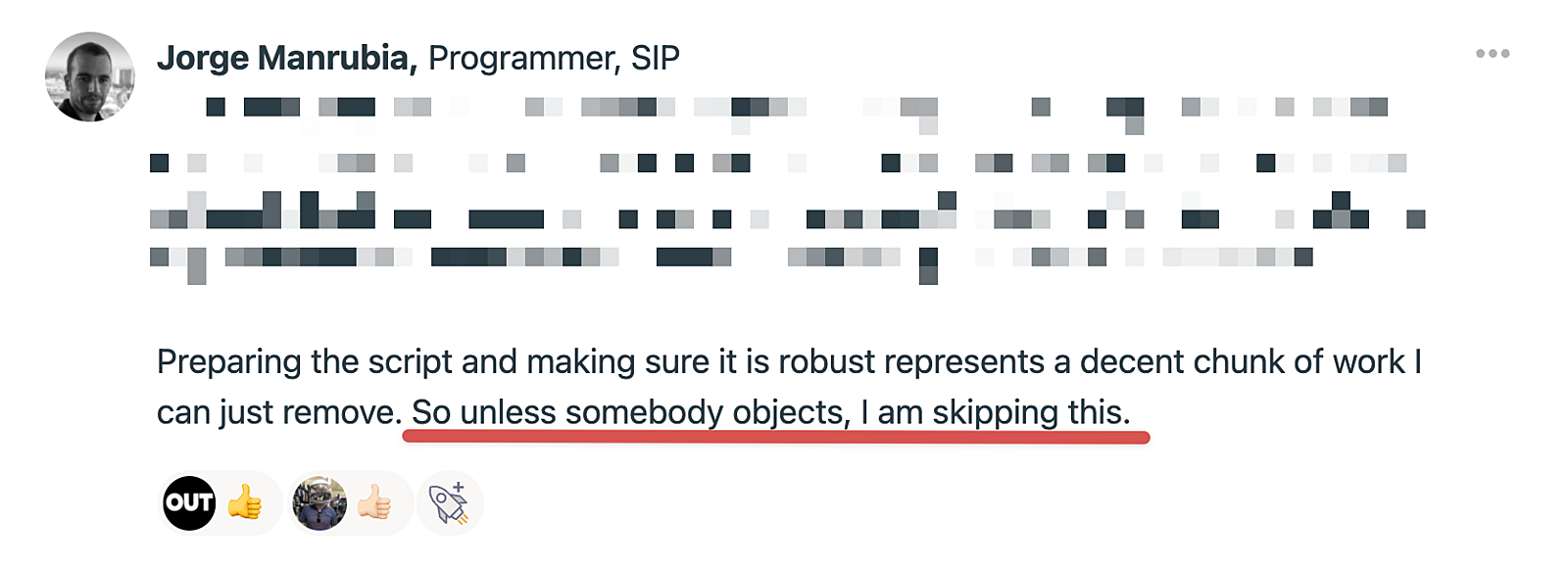
When working remotely, this is a great habit: make decisions and communicate them, but try to avoid getting blocked waiting on others.
Imagine this typical example: you are not sure about how to do something. Your first idea might be to jump into a chat and ask someone for help. I won’t say I never ever do this, but it’s not a great approach: you interrupt that person and block yourself until they answer.
A better idea is asking asynchronously in whatever system you use (e.g.: Basecamp todos or GitHub issues). Now, you might still be blocked until the other person responds, but at least they can do it on their terms and schedule. That’s an improvement.
And here is an even better one: try to come up with a proposal on how to proceed in that asynchronous message and ask other people to validate it. This is much better because you have done the work, but you are still blocked waiting on somebody else’s ok.
Finally, my favorite is a subtle iteration over the previous one: explain your idea but, instead of asking for validation, involve other people so that they can weigh-in if they feel like it. Doing this is not rocket science, just ask for feedback in a non-blocking way. Here are two recent examples where I did this:
This way, you align three key variables:
- You don’t block yourself: you have a plan and will proceed with it if not told otherwise.
- You communicate what you will do to your colleagues without putting additional work on their plates.
- You force yourself to do the homework before asking.
Are there exceptions? For sure! Some tasks are so important that it makes sense to look for some kind of sanctioning before proceeding. In other cases, you are so lost that the smart action is asking for help right away. And there are urgent issues where different rules apply. But, all exceptions considered, this is a great default.
How often you can make a decision without asking will undoubtedly depend on your experience, and there will always be times where you need help from others to move forward. The key ingredient here is putting the work before asking, not avoiding questions! I also believe this is good advice independently of whether you are very junior or very senior. It’s a habit that eventually pays off, even if you don’t succeed much at first.
---

